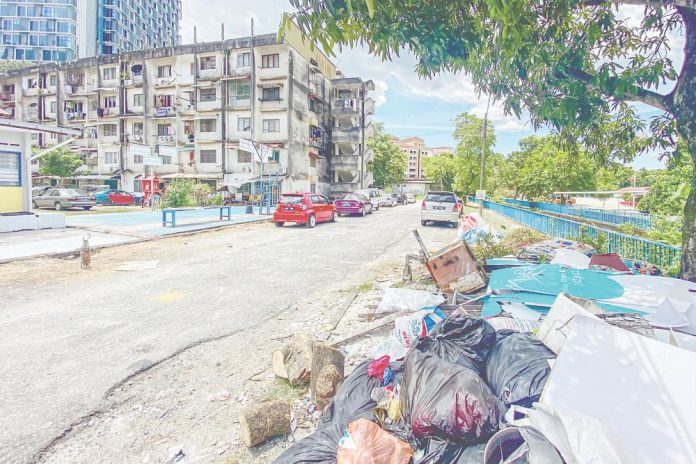“WHO, what, when and why should one be concerned with taking a deworming tablet?”. This was the quest I took over the last three years as I embarked on my PhD research.
Although intestinal parasitic infection (IPI) in the country has been on the decline over three decades, infections continue to persist, particularly among vulnerable communities.
My quest took me to a community often missed – residents of low-cost public housing in Klang Valley.
Urban parasite problem
When we talk about urban living, we often envision modern infrastructures and complete amenities within the hustle and bustle of city life. Yet, beneath this fancy facade lies an unsettling public health concern: IPI.
These infections, often associated with rural and impoverished settings, are still lurking among the urban population, affecting about one in five people.
Despite modern facilities, urban areas are not immune to the factors that facilitate IPI. Indiscriminate waste management, overcrowding and poor sanitation practices are rampant in low-cost housing areas like People’s Housing Projects (PHP), contributing significantly to the infection statistics.
Recent studies show that the common parasites that infect urban Malaysians are roundworms (Ascaris lumbricoides) and whipworms (Trichuris trichiura).
As it turns out, this infection does not discriminate against gender, age or ethnic group. However, children and residents of low-cost housing projects are at a greater risk of infection due to their abject living conditions and lack of civic-mindness.
Once, during an engagement with residents from one of the PHP in Klang Valley, as I was making my way back to my car, I was unexpectedly showered with a stream of curry sauce, carelessly thrown from one of the flats. Few people can claim such an experience. On another engagement, a bottle of Vitagen was dropped onto my head.
Sadly, this is the harsh reality of today’s many PHP. It is common to see rubbish and waste littered (and flying) around their vicinities.
High-rise dumping, where unwanted furniture and waste are thrown from upper floors to the ground, is rampant.
Such practices create a conducive environment for pests like rodents and wild animals to thrive while also increasing the risk of tragic accidents, including fatalities caused by discarded heavy furniture.
The waste collection facilities at these PHP are in poor condition and insufficient to handle the volume of waste generated by residents.
As a result, the facilities overflow, forcing residents to discard their waste haphazardly. This situation contributes to the persistence of intestinal parasites in urban areas, exacerbated by a lack of understanding about the infection’s causes among urban inhabitants.
Our modern diet of undercooked meat and fish, sushi, raw vegetables and unwashed fruits also increases the risk of infection as microscopic parasitic eggs and/or larvae may be present without us realising it.
Push for change
For the past few years, we have been working closely with PHP residents across Klang Valley to better understand why this infection persists despite basic facilities being provided.
As a result, we developed a community-based intervention programme called “Bersama Mencegah Jangkitan Parasit”, or Cegah JaP for short, supported by a fundamental research grant scheme from the Higher Education Ministry and ThinkCity’s Kita-Untuk-Kita (K2K) community grant.
This pilot programme introduced residents from three different age groups to interactive activities designed to educate them about the causes, risk factors and prevention of IPI (likely referring to a specific health or social issue). These educational elements were incorporated into familiar and enjoyable games like Bingo, musical chairs and charades to ensure engagement and accessibility.
Gross specimens of the parasites were also exhibited to help the participants better grasp the gravity of the infection more effectively and how easy it is to avoid infection with better hygiene practices.
This approach created a more relaxed and casual environment for participants to learn new information without the pressures of a traditional classroom setting. The results were surprising, with over 70% of participants significantly improving their understanding of the subject.
IPI often presents no symptoms and can go unnoticed for years. However, it can lead to general fatigue and tiredness, which are commonly overlooked but can impact overall quality of life.
As humans, we sometimes neglect our health until it becomes a serious issue. For IPI, however, a simple and affordable annual treatment of 400mg albendazole, costing just RM10, is enough to eliminate the risk of infection.
So, when was the last time you took a deworming tablet?
Nabila Abu Bakar is a fourth year PhD student at Universiti Malaya. Her research centred around neglected tropical diseases, including intestinal parasitic infections amongst residents of PHP in Klang Valley.
Comments: letters@thesundaily.com








